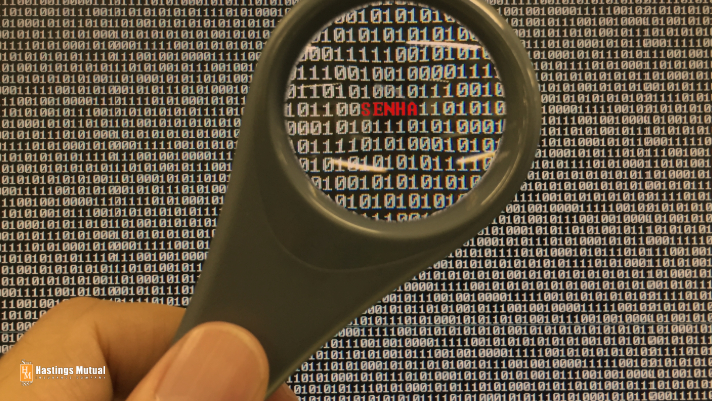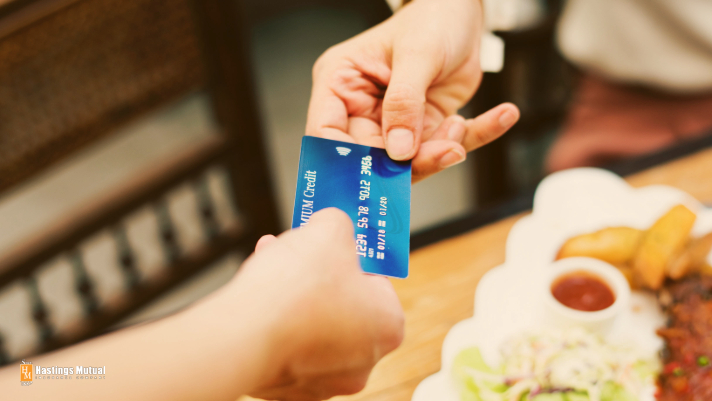Simple Ways To Protect Your Password
Feb 21, 2019, 3:40 PM
Don't lock yourself away from your own money or online identity.
On December 9, 2018, 30-year-old Gerald Cotton died while on vacation in India, reportedly of a chronic disease he had suffered for years. Cotton was CEO of Quadriga CX, a Canadian company that helped manage cryptocurrency, essentially money in electronic form. The company holds about $145 million (US), but according to court records, the only person who had access to the accounts was Cotton. With his death, customers had no way of getting to their own money.
While investigations into Cotton and his business are ongoing, the first lesson of Quadriga CX is one that applies to any business that uses computers: make sure there’s always a way to get to your information. It needs to be protected from hackers by using a strong password, but it also needs to be accessible.
Internet experts recommend storing your passwords — all your passwords, from the ones for your email and bank accounts to the ones you use only once to download a single image — in a password manager. You list your passwords there, and they’re stored away on a highly protected website. You only need one password to see them all.

Another option is multi-factor authentication, where you need to confirm that you’re really you when you log in for the first time. This confirmation is sometimes done by entering a code that’s texted to your phone, or one that you receive via a phone call. A hacker can only get to your password by having access to your computer and your phone at the same time. ATMs also use multi-factor authentication: you have to have a card and know the correct PIN to access money.
There are plenty of guidelines for choosing passwords, too. The most important idea is to select something that’s near-impossible for a computer to guess, but that has meaning to you.
If you’re like most computer users, you have passwords for almost everything: your Facebook page, your child’s school records, your TV streaming service, and much more. A few simple, free tools are all you need to help protect yourself from online thieves.
There are no rules on whether to share passwords with a friend, a spouse, or a business partner… though if Gerald Cotton’s situation is any guide, any cryptocurrency owners you know might want to be able to access their own money.
While investigations into Cotton and his business are ongoing, the first lesson of Quadriga CX is one that applies to any business that uses computers: make sure there’s always a way to get to your information. It needs to be protected from hackers by using a strong password, but it also needs to be accessible.
Storage Solutions
Internet experts recommend storing your passwords — all your passwords, from the ones for your email and bank accounts to the ones you use only once to download a single image — in a password manager. You list your passwords there, and they’re stored away on a highly protected website. You only need one password to see them all.

Another option is multi-factor authentication, where you need to confirm that you’re really you when you log in for the first time. This confirmation is sometimes done by entering a code that’s texted to your phone, or one that you receive via a phone call. A hacker can only get to your password by having access to your computer and your phone at the same time. ATMs also use multi-factor authentication: you have to have a card and know the correct PIN to access money.
Picking Passwords
There are plenty of guidelines for choosing passwords, too. The most important idea is to select something that’s near-impossible for a computer to guess, but that has meaning to you.
If you’re like most computer users, you have passwords for almost everything: your Facebook page, your child’s school records, your TV streaming service, and much more. A few simple, free tools are all you need to help protect yourself from online thieves.
There are no rules on whether to share passwords with a friend, a spouse, or a business partner… though if Gerald Cotton’s situation is any guide, any cryptocurrency owners you know might want to be able to access their own money.
Related Blog Posts
-
 Four Ways to Stop Identity Theft
Four Ways to Stop Identity Theft
Keep your money and your personal information safe online and in the real world.
-
 4 Simple Ways To Protect Your Social Media Status
4 Simple Ways To Protect Your Social Media Status
I’m glad you found Hastings Mutual’s blog. But is everyone you see online as trustworthy?
-
 The Easiest Way To Find Customers Online
The Easiest Way To Find Customers Online
You know you need to get online, but how? When? Where?
Hastings Insurance Company
404 E. Woodlawn Ave.
Hastings, MI 49058
Monday-Friday
8:00 a.m. - 4:30 p.m. (EST)
(800) 442-8277
Terms of Use and Privacy Statement© Hastings Insurance Company. All rights reserved.



